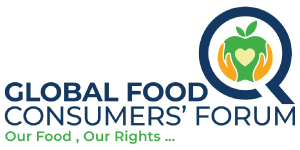
Authorities in Ireland have issued an urgent recall of desiccated coconut sold across major supermarkets — including Dunnes Stores, Tesco, and SuperValu — due to suspected plastic contamination. Consumers are strongly advised not to consume the affected batches, as the presence of plastic fragments poses serious health and safety risks. Retailers have begun removing the contaminated products from their shelves and are displaying recall notices for public awareness.
Details of the Recall
The Food Safety Authority of Ireland (FSAI) announced that several batches of desiccated coconut may contain pieces of plastic, which likely entered during the production or packaging process. The recall affects multiple brands sold nationwide, with distributors instructed to alert retail customers and provide point-of-sale warnings.
Desiccated coconut, a popular ingredient in baking and desserts, is commonly consumed without extensive cooking, which heightens the risk of ingesting foreign materials like plastic if contamination occurs.
Potential Health Risks
Plastic contamination in food is not merely a matter of inconvenience — it carries tangible health threats. Consuming visible or micro-sized plastic pieces can cause:
- Physical injuries: Sharp plastic fragments may cause mouth, throat, or intestinal abrasions, and in severe cases, lead to choking or intestinal blockage.
- Digestive complications: Larger fragments can irritate or damage the gastrointestinal lining, resulting in nausea, pain, or internal injury.
- Chemical exposure: Microplastics release toxic chemicals such as bisphenol A (BPA) and phthalates, which are known endocrine disruptors. These chemicals can interfere with hormonal balance, affect reproductive health, and potentially increase risks of cancer and neurological disorders.
- Cumulative effects: Long-term exposure to microplastics contributes to inflammation, oxidative stress, and immune system dysfunction.
Recent research highlights that humans ingest thousands of microplastic particles each year through contaminated food, beverages, and even air. The recall underscores the growing global concern about how plastic pollution is infiltrating the food chain and, ultimately, the human body.
Preventive Measures and Broader Context
Food authorities emphasize that such recalls are critical to protect consumers and maintain food safety standards. However, the incident reflects a broader issue — the overreliance on plastic materials in food manufacturing, storage, and transportation.
To minimize personal exposure, consumers can take practical steps:
- Choose products packaged in glass, paper, or metal instead of plastic.
- Avoid heating food in plastic containers, which can accelerate chemical leaching.
- Support brands that prioritize eco-friendly and sustainable packaging.
- Stay updated on recall alerts issued by food safety agencies.
As investigations continue, the FSAI urges the public to check batch numbers and discard any implicated desiccated coconut products. Authorities reaffirm their commitment to ensuring that such contaminants are swiftly removed from the market to safeguard consumer health.
